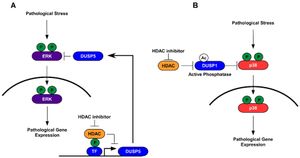Short-term exposure to particulate matter (PM) air pollution can have detrimental effects on cognitive functions, according to new research from the University of Birmingham, UK. The study highlights how individuals exposed to high concentrations of PM experience significant reductions in executive cognitive functions, particularly selective attention and emotion expression recognition, four hours after exposure.
Air pollution is recognized as the leading environmental risk factor to human health, contributing to numerous diseases and even premature death. Previous research has linked long-term exposure to low-quality air with neurodevelopmental issues and neurological diseases, making the effects of short-term exposure even more alarming. This study aims to clarify how acute exposure impacts cognitive performance and whether different inhalation pathways play any significant role.
Conducted with 26 healthy adult participants, the researchers first exposed them to either clean air or heightened PM concentrations sourced from burning candles for one hour. They then had four hours to recuperate before undergoing cognitive testing, which included assessments across various domains such as working memory, selective attention, and emotion recognition.
The results were compelling. Exposure to PM pollution resulted in significantly reduced performance on tasks assessing selective attention and emotion expression discrimination when compared to performance following clean air exposure. Crucially, the inhalation pathway—whether through normal breathing or restricted nasal inhalation—did not alter these outcomes. The findings imply systemic inflammation may be the central mechanism behind the cognitive deficits observed, lending weight to the idea of inflammation as detrimental not only to physical health but also to mental acuity.
These findings support previous research showing short-term PM exposure can impair various cognitive functions and reinforce the connection between air quality and neurological health. The absence of significant changes to working memory and psychomotor vigilance suggests these aspects of cognitive functioning might be more resilient to acute air pollution effects, but they remain impacted by chronic exposure.
While the study did not find differences based on inhalation methods, its results underline how pollution exposure can still lead to observable declines across key cognitive processes more broadly. Specifically, the significant reductions noted following PM exposure suggest immediate impacts on decision-making and attention, which are pivotal for everyday tasks—like driving, working, or even grocery shopping.
"Exposure to PM pollution significantly reduced participant selective attention performance comparative to clean air exposure," the authors noted, emphasizing the serious nature of these findings. They pointed out the importance of recognizing air pollution not merely as a physical health issue but also as one deeply intertwined with cognitive functioning and emotional health.
Overall, the study encourages public health authorities to acknowledge the cognitive effects of air pollution, especially for populations already vulnerable to cognitive decline. A more nuanced exploration of how distinct pathways of inhalation might affect cognition suggests numerous avenues for future research, particularly focusing on specific populations who may experience heightened vulnerability to air quality issues, such as the elderly or those with pre-existing health conditions.
Given the significant effects highlighted by this research, it is imperative to continue investigating the long-term cognitive outcomes associated with sustained exposure to poor air quality. Future studies could provide valuable insights by focusing on groups prone to cognitive decline, potentially establishing links between acute exposure and long-term cognitive impairments.



